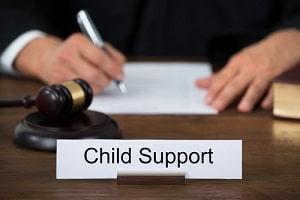Recent Blog Posts
How Are Parenting Plan Disputes Handled During an Illinois Divorce?

Being a parent means you do everything in your power to give your children the best life possible. Unfortunately, spouses are not always in agreement when it comes to what is best for their children. Having differing opinions is nearly unavoidable, but these differences can get in the way when it comes to creating a parenting plan. If you are getting a divorce, and you have minor children, you and your spouse must draft this legal document, which contains vital information about parenting time and the allocation of parental responsibilities. Disagreements are a part of life, but a knowledgeable divorce attorney can help you resolve many of these issues.
Drafting a Joint Parenting Plan
Before you can finalize your divorce, you and your spouse must have a parenting plan in place. The parenting plan is like a game plan for how you will raise your children after the divorce. The two main components of a parenting plan are the allocation of parental responsibilities (child custody) and the parenting time (visitation) schedule. Your parenting plan should also address issues such as each parent’s decision-making rights, where the child will spend certain holidays and school breaks, how and where parenting time transitions will take place, and how your child will be transported between households.
Should My Spouse and I Hold Joint Property After Our Illinois Divorce?

By far, one of the things that couples state is the most stressful during a divorce is the financial aspect of the proceedings. When you get a divorce, you and your spouse must come to an agreement as to how nearly everything the two of you own will be divided. This includes both tangible items, such as vehicles and your marital home, in addition to intangible assets and debts, such as bank accounts and credit cards. The courts encourage you to come to an agreement about the division of your property among the two of you, but that is not always possible. If the court must intervene, a variety of factors will be used to determine an equitable distribution of assets.
Dividing Marital Property
If you are like most married couples, you and your spouse probably jointly own most everything. This makes things easier during a marriage, but during a divorce, it can complicate matters. If you and your spouse both have your name legally attached to items such as vehicles, homes, other real estate property, or credit card debt, it may be confusing when it comes to dividing the property. Because many of these items cannot just be split in half, some creative methods are often used to accomplish the division in a fair manner.
How Can Temporary Orders Help Me During My Illinois Divorce?

Getting a divorce is a stressful situation, with much of that stress stemming from the uncertainty of the situation. Once your divorce is finalized, you will have an agreement in writing for how issues will be handled moving forward. You and your spouse must create a parenting plan that will be followed as you raise your children. This may also include a spousal support and/or child support agreement, so you have a better picture of your future financial situation. However, what happens before you reach that step? During the divorce process, it is not uncommon for one spouse to move out of the family home, and you and your spouse will begin separating your finances and other aspects of your lives. During this time, temporary orders can be put into place to help alleviate some of the anxiety during the transition.
Can My Parental Rights Be Affected if I Am a Legal Marijuana User?

The ultimate goal of all parents is to make sure their children are happy and healthy. In cases in which parents are divorced or are no longer together, disagreements may arise when it comes to determining what is best for their kids. In divorce cases, you must address certain child-related issues, such as parenting time and decision-making responsibilities. Illinois courts strongly encourage couples to work together to come up with a plan for their family, but this does not always work. Sometimes, a parent will do whatever they can to get their way when it comes to the custody of the children. If it is known that a parent uses marijuana, the other parent may attempt to use that fact to their advantage.
Marijuana Laws in Illinois
Medical marijuana has been legal in the state of Illinois since 2014. Those with a variety of qualifying conditions have been able to use cannabis as a way to treat certain diseases and conditions. At the beginning of 2020, recreational marijuana became legal for most adults in Illinois. As long as you are over the age of 21, you are legally permitted to purchase and consume cannabis in Illinois, although in certain amounts and in designated places. It is important to note that the drug still remains federally illegal.
What Are the Different Types of Adult Guardianship in Illinois?

When you think of guardianships, you may think of a person who is legally appointed to care for a child when that child’s parents are unable to do so. While this definition is accurate, that is not the only form of guardianship. Some adults are also in need of guardians. In the state of Illinois, the probate court is entirely responsible for granting guardianships to adults in need. Illinois has some of the most progressive and protective laws concerning adult guardianship. Rather than deeming a disabled adult “incompetent,” as was necessary prior to 1979, the needs of adults are measured through a clinical report put together by the court, and their guardianship will be tailored to meet their needs.
Who Can Have a Guardian Appointed to Them?
Like other states, Illinois law presumes that those who are over the age of 18 are able to handle their own affairs. In some situations, however, a person may be incapable of making important decisions or taking care of themselves for various reasons. Illinois law may grant guardianships to people who are disabled because of:
How Can I Collect Past-Due Child Support in Illinois?

The state of Illinois, like most other states, acknowledges that it is the duty of both the mother and the father to financially provide for a child. In situations where parents were married but got divorced or were never married but are now no longer together, child support is ordered to ensure the child is being provided with the essentials that he or she needs. Child support orders are legally enforceable orders, meaning someone can face consequences if he or she does not pay support as ordered. Unfortunately, this does not stop some parents from violating orders and refusing to pay child support payments. However, safeguards are put in place to help parents enforce and collect past-due child support that is owed to them.
What Happens When Payments Are Delinquent?
Once a parent becomes delinquent on child support payments, he or she will be in violation of the court's orders. If the other parent has not received child support payments on time or in full, he or she should work with a family law attorney to pursue enforcement of child support through the court. In many cases, the court will order that the paying parent's wages should be garnished, and an order will be sent to the parent’s employer requesting that they withhold an extra specific amount to cover the delinquent amount. Income will be withheld from the parent until the amount owed is paid in full. Any amount of child support that is owed must be paid in full, along with interest on past-due payments.
How is Spousal Support Calculated if it Does Not Fall Under Guidelines?

Getting a divorce means a lot of changes will occur. One of the most noticeable is your change in income. Most married couples live and run their household off of two incomes. When you get divorced, you have to transition from sustaining a household under shared incomes to meeting your needs with your income alone. For spouses who have not worked during their marriage or who have recently entered the workforce, this can be problematic. People who make significantly less than their spouses may also be concerned about their ability to support themselves after divorce. In these cases, spousal maintenance may be awarded. But what happens when your situation does not fall under the normal guidelines for calculation?
Illinois Spousal Support Guidelines
There are a number of factors that can affect whether or not you receive a maintenance award. These factors can include the income of both you and your spouse, whether or not either of you were out of the workforce for a period of time, and each of your needs. If the court finds that an award is appropriate, and you and your spouse earn a combined income of less than $500,000, the court will follow normal guidelines. This means spousal maintenance will be calculated by taking 33.3 percent of the income of the paying spouse and subtracting 25 percent of the income of the receiving spouse. Maintenance will usually be paid monthly, but in some cases, it may be paid annually or in a lump sum at the time of divorce.
3 Tips to Help Protect Your Privacy During an Illinois Divorce

Although it is not impossible to have an amicable divorce, that is not always the case for some couples. Depending on the circumstances, it can be difficult to push your feelings about your spouse and the end of your marriage aside so you can work together peacefully. Divorce is a stressful situation that can, unfortunately, bring out the worst in some people. Some spouses can become controlling, and they may be tempted to spy on each other through the use of electronic devices. In these contentious situations, it is important that you take the steps needed to protect your electronic devices and the information stored on them from your spouse. Below are a few practical ways you can protect your privacy from your spouse’s interference.
Change Your Passwords
You may think that password-protected information is always safe. However, this is not always true. Even if you have passwords protecting devices like your cell phone, your computer, or different financial accounts, you should still change them to prevent your spouse from gaining access. This can be especially useful if you have previously used your spouse’s devices to log in to certain accounts, because password information may have been saved. Be sure to use unique passwords for each account, and choose passwords that your spouse will not be likely to guess. By ensuring that your spouse cannot access your accounts, you can prevent them from taking actions such as dissipating marital assets by transferring money from a joint account into a personal account.
How to Avoid Common Financial Mistakes During Your Illinois Divorce

There are two things that people are usually the most concerned about when they get divorced: their money and their kids. If you or your spouse has filed for divorce, a lot of time and effort may be spent worrying about finances during your divorce proceedings -- but that does not stop mistakes from happening. The money decisions you make throughout the legal process of ending your marriage not only affect the outcome of the divorce, but they can also affect the rest of your life. Here are a few common financial mistakes that are easy to make during your divorce and how you can avoid them:
Not Understanding the Difference Between Marital and Non-Marital Property
One of the first things you must do in your divorce is to determine what assets are and are not subject to division. In the state of Illinois, certain property is considered to be non-marital property, which is typically not divided in a divorce. These can be items or assets that you or your spouse each bought or received as gifts before your wedding.
How Are Parenting Time Disputes and Interference Handled in Illinois?

Some of the most common issues that arise after a divorce is settled are those related to the child(ren) the couple had together. Specifically, disputes over parenting time (visitation) can occur, and they can lead to a great deal of conflict between the parents. Because the decisions made during divorce are legally binding, a non-compliant parent can face a variety of legal consequences.
Court-Ordered Parenting Time
When you get a divorce, the state of Illinois requires you to come up with a parenting plan that outlines all relevant issues regarding your child, including how you and your ex-spouse will share parental responsibilities and how parenting time will be split between the two of you. If you cannot come to an arrangement on your own, an Illinois judge will make the decision for you based on a variety of factors in the child’s best interests. Because the parenting time schedule specified in your parenting plan is required, approved, and sometimes even created by the court, this makes it a legally-binding court order. This means both you and your spouse must follow the terms of the order, or you could face being held in contempt of the court.









